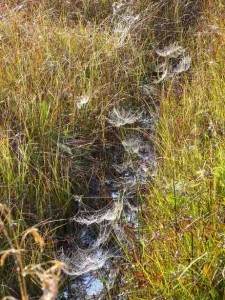In this post, Mirco Bundschuh talks about their recent review paper addressing the propagation of alterations in the aquatic to the terrestrial ecosystem.
The fluxes of resources and energy such as nutrients and emerging aquatic insects from aquatic to terrestrial ecosystems were often investigated in systems without anthropogenic impact. Nowadays, however, most ecosystems are substantially influenced by human activities potentially influencing the integrity of freshwater systems and consequently the linkage of aquatic to terrestrial ecosystems. During the present literature review, we uncovered that besides hydromorphological and hydraulic alterations, also water pollution and invasive species can meaningfully affect this linkage, whereas the role of the two latter aspects seem understudied. Moreover, the role of these anthropogenic alterations in aquatic systems for the bottom-up or top-down directed effects in the receiving terrestrial food web were rarely assessed. This knowledge gap is identified as a major challenge to more fully understand the linkage of aquatic and terrestrial systems particularly during the Anthropocene.
The paper “Review on environmental alterations propagating from aquatic to terrestrial ecosystems“ was authored by Ralf Schulz, Mirco Bundschuh, René Gergs, Carsten A. Brühl, Dörte Diehl, Martin Entling, Lorenz Fahse, Oliver Frör, Herman F. Jungkunst, Andreas Lorke, Ralf B. Schäfer, Gabriele E. Schaumann and Klaus Schwenk published in Science of the Total Environment.

